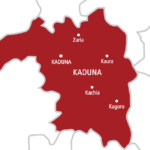In what has become cheering news to most Nigerians, the amount of money shared by the three tiers of government at the monthly meetings of the Federation Account Allocation Committee has experienced some level of increase for some time now.
In May last year, the amount rose to N680.783 billion, representing an increase of 6.94 per cent over the amount shared in April. It rose to N954.1bn in July, which was an increase of 18.9% over the N802.407bn distributed in June. A similar rise was recorded in the amount disbursed in December, with N990.19bn shared for that month, an 9.8 per cent rise from N902.05bn in the previous month.
Interestingly, these increases are being recorded against the background of a significant change in the country’s revenue-earning framework that many people feared would spell doom for the economy. Last July, at its unveiling as a limited liability, NNPC declared that it would no longer remit money to the FAAC for distribution to the three tiers of government. And since then, the flow of funds from NNPCL has dried up.
Before then, the former public corporation had been the proverbial goose that laid the golden eggs on which the Nigerian economy was run. With oil as the mainstay of Africa’s biggest economy, NNPC literarily dictated the tone of the country’s financial health.
The recent trend is obviously a positive development for the customs, and others. This is coming as the FIRS has just announced an increment in earnings. Perhaps, it could point to an improvement in the efficiency of the activities of the country’s revenue-generating agencies such as the Federal Inland Revenue Service, which crossed the N10trn mark in 2022, the highest tax collection ever recorded by the service in its history in a single year. It is also a known fact that customs, for instance, has widened its net to help it garner more revenue from import duties, etc.
This means that these revenue-generating agencies are now living up to their expectations. It is plausible that this level of efficiency could not have been displayed during the era of “free money” that NNPC and the oil industry came to represent in the country.
The truth, however, is that we could have done this and even more a long time ago instead of relying on revenue from oil. Instead, we chose as a nation to pay lip service all along to the much-touted idea of economic diversification. As this newspaper pointed out recently, Nigeria must brace up for the reality of a future without oil, and explore other sources of revenue that exist in the country.
Now, for a proper assessment of this new trend, Daily Trust, hereby, raises the need for a sectoral breakdown of the new revenue figures. Such a disaggregation of the revenue figures will enable policymakers to have a proper understanding of the sectors that are doing well and those still lagging behind so that appropriate measures could be initiated for improvements across the board.
While we applaud the higher revenues being reported over the months, we also wish to point out that the inflationary pressure that was witnessed in the country for the most part of last year could have played a role in this. By causing a general rise in the prices of goods and services being produced in the country, inflation obviously could have raised the monetary value of such products to the point that they attracted higher taxes and charges.
Thus, to have a proper sense of how much the revenues have increased in real terms, there is a need to deflate these figures with the appropriate indices.
Ultimately, this increase should impact the welfare of Nigerians. Unfortunately, this is not so currently, with the poverty rate still very high: about 42 per cent monetary poverty rate and 63 per cent multidimensional poverty rate. The fact is that these rising amounts being distributed at FAAC meetings are not reflecting the quality of life of Nigerians, from all indices of life.
The recent achievements in revenue generation should also be a challenge to the sub-nationals – the states and the Local Government Areas. Undoubtedly, each of them has the potential to raise the revenues generated from their areas of jurisdiction.
It is imperative for the state governments to raise the tempo of economic activities in their domains as doing this will help them grow their revenue bases. It does not do any good to the states to stand by and watch companies located within their domains fold up or remain comatose as a result of the prevailing harsh economic conditions.
We also urge the companies and individuals who pay taxes to begin to show interest in knowing what these funds are being used for and how they are being utilized by the governments. The days of misappropriation of public funds should be over in the country. There should be accountability in the way public funds are utilised.
The time whereby citizens did not show interest in how their taxes are being used should be over. Each naira and kobo must be accounted for.

 Join Daily Trust WhatsApp Community For Quick Access To News and Happenings Around You.
Join Daily Trust WhatsApp Community For Quick Access To News and Happenings Around You.


